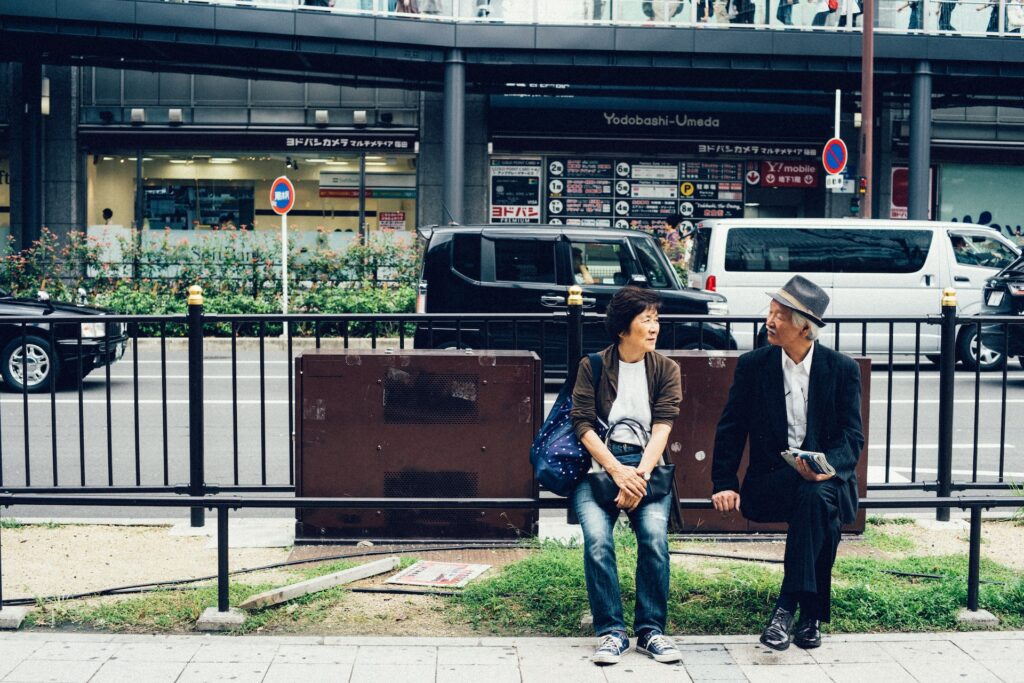How to Say “How Are You?” in Japanese
When learning a new language, understanding common greetings is essential for effective communication. In Japanese, the equivalent of “How are you?” is expressed differently, reflecting the language’s unique structure and cultural nuances. It’s not as common to ask “How are you?” as a greeting in Japanese!

Especially with new people you meet, you should never ask this question! Instead, check out our article on introducing yourself in Japanese!
Now, let’s dive in on the various ways to ask “How are you?” in Japanese, along with examples and cultural context to enhance your understanding.
Basic Phrases:
お元気ですか? (o genki desu ka?)
This is the most common and polite way to ask someone how they are in Japanese. It can be used in formal and informal situations. In general, only use this if you haven’t seen the other person in awhile. It could be odd to say this, if you saw them yesterday for example!
Example:
- お元気ですか? (o genki desu ka?) – How are you?
- はい、元気です。 (hai, genki desu.) – I’m fine.
If you’re not “well”:
- いいえ、元気ではありません。 (iie, genki de wa arimasen.) – No, I’m not well. (Note: This is an uncommon way to answer, as Japanese people wouldn’t say that they are not well that bluntly)
- いいえ、最近風邪をひいてしまいました。(iie saikin kaze o hiite shimaimashita) – No, I recently got a cold. (Note: this might be a more natural way to answer as you explain why)
調子はどうですか? (Choushi wa dou desu ka?)
This is a more casual way to inquire about someone’s well-being or how something is going. In most cases this is used if the person has an important event coming up or they are recovering from an illness.
For example, it would work well if the person has a tennis tournament tomorrow, and you ask them how its going with their preparation.
Example:
- 調子はどうですか? (Choushi wa dou desu ka?) – How’s it going?
- まあまあです。 (Maa maa desu.) – It’s so-so.
- あまりよくないです。 (Amari yoku nai desu.) – Not too good.
Informal Expressions:
元気? (genki?)
This is a shortened, informal version of “お元気ですか?” and is commonly used in casual conversations with friends. Remember, not to say this every time you meet someone! Only when it has been awhile!
Example:
- 元気? (genki?) – How are you?
- うん、元気だよ。 (un, genki da yo.) – Yeah, I’m fine.
- いや、最近忙しいんだ。 (Iya, saikin isogashii n da.) – No, I’ve been busy lately.
調子どう? (Choushi dou?)
Similar to “調子はどうですか?”, this is a casual and shorter way to ask about someone’s well-being.
Example:
- 調子どう? (Choushi dou?) – How’s it going?
- まあまあかな。 (Nantonaku ne.) – It’s so-so, I guess.
- よくないんだ。 (Yoku nain da.) – Not good.
Cultural Insights:
- In Japanese culture, it’s not common to ask someone about how they are doing if you met them for the first time. It is also only used when you have not seen them in awhile. Do not use it every day when you meet someone!
- When responding, it’s considered courteous to express humility, so even if you’re feeling great, you might want to respond modestly.
- Japanese people often avoid discussing personal troubles openly in casual conversations. They may use non-verbal cues or imply their feelings indirectly. If you don’t feel well, it would be good to answer in a way that would make the other person more comfortable. Don’t go into too many personal details but also make sure to explain why you don’t feel good so they are not left awkwardly.
Mastering the art of asking “How are you?” in Japanese is not just about language; it’s also about understanding the nuances and cultural context. I recommend you to practice this by listening to how Japanese speakers use these phrases! Try to pick them out in your favorite movies and T.V. shows and analyze when and in what context people are using them!
Let me know if you have any questions!
~ Tanuki





